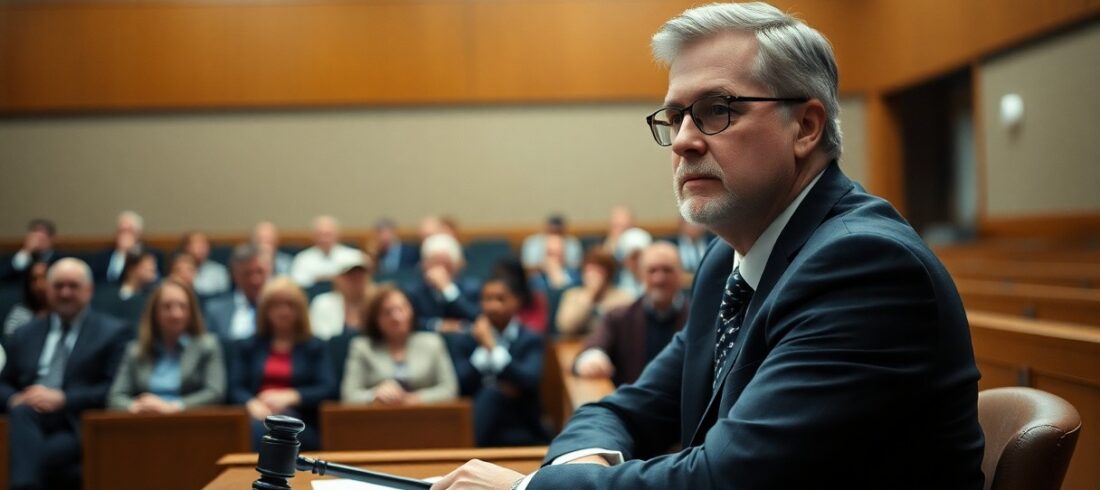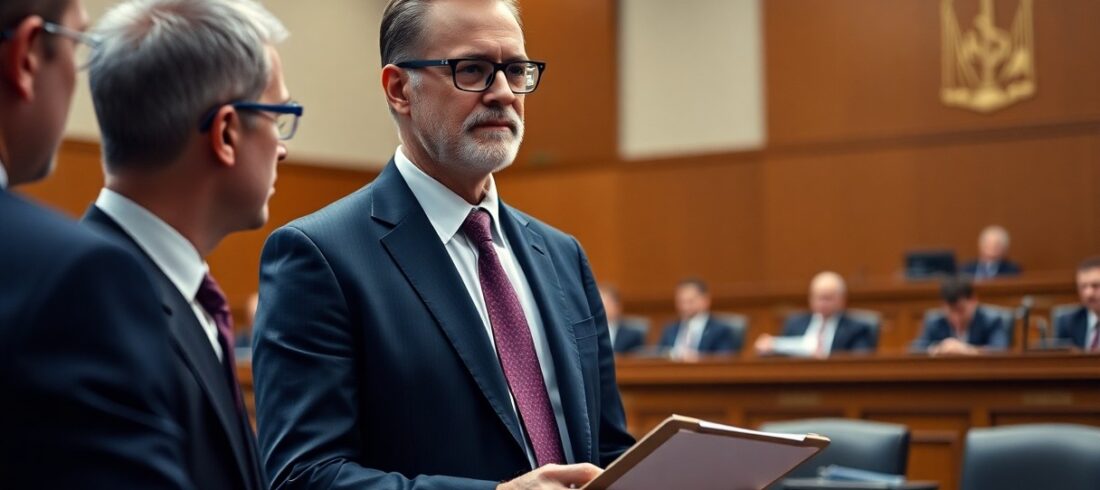Many factors come into play when selecting the right expert witness for your case, as their expertise can significantly impact the outcome. You need to carefully assess their qualifications, credibility, and communication skills to ensure they can present complex information clearly. By understanding the specific requirements of your case and knowing what to look for, you can make an informed decision that enhances your arguments and strengthens your overall position.
Understanding the Role of an Expert Witness
Before you decide on who to bring into your legal case, it is important to grasp the purpose of an expert witness. These professionals possess specialized knowledge and experience that goes beyond that of the average person. They help illuminate complex issues for the court, providing clarity and insight that can significantly influence the outcome of your case.
Definition of an Expert Witness
On any legal matter, an expert witness is someone who has expertise in a particular field relevant to the case at hand. This can range from medical professionals in personal injury cases to financial analysts in economic disputes. Their role is to present opinions and insights based on their expertise, which aids the court in understanding intricate subjects.
Importance of Expert Witnesses in Legal Cases
Cases often hinge on intricate details that require specialized analysis. Expert witnesses play a vital role in explaining these nuances, helping jurors and judges grasp complex subjects. Their input not only strengthens your argument but can also sway decisions in your favor, making their presence paramount in legal proceedings.
Expert witnesses provide credible opinions that can validate your claims while counteracting opposing arguments. Their testimony can influence the jury’s perception and potentially steer the case towards a favorable resolution. Utilizing an expert effectively can mean the difference between merely presenting evidence and fully convincing the court of your position.

Factors to Consider When Choosing an Expert Witness
You should evaluate several key factors when selecting an expert witness for your case:
- Qualifications and Credentials
- Experience in Relevant Field
- Industry Reputation
- Availability and Commitment
The right combination of these factors can significantly influence the effectiveness of your case.
Qualifications and Credentials
Clearly, the expert’s qualifications and credentials play a foundational role in their ability to provide valuable insight. You should ensure that the expert has relevant degrees, certifications, and memberships in professional associations that validate their expertise in the subject matter.
Experience in Relevant Field
You need to assess the expert’s experience in the specific field that pertains to your case. Their hands-on experience often determines how effectively they can apply their knowledge to the nuances of your situation.
Relevant experience is not just about the number of years in a particular field but also about facing similar cases and a thorough understanding of the intricacies involved. An expert who has navigated comparable situations will be better equipped to provide insights that can aid in building your case.
Industry Reputation
Factors such as an expert’s standing in their field and past collaboration with legal professionals affect their reliability. Testimonials, peer opinions, and publications can provide insight into how others view the expert’s capabilities.
Experience matters when it comes to industry reputation. An expert with a solid track record backed by successful testimonials and peer validations can not only lend credibility to your case but also instill confidence in the judge or jury. This trust is vital for effective communication of expert opinions during trial proceedings.
Availability and Commitment
You should consider the availability and commitment of the expert witness you choose. Their willingness to engage in the case is key to an effective collaboration throughout the legal process.
It is crucial to discuss timelines and ensure that the expert can dedicate the necessary time to prepare for your case thoroughly. A committed expert will not only analyze evidence but also provide consistent support through depositions and court appearances, enhancing your case’s likelihood of success.
Evaluating the Expert’s Communication Skills
All cases benefit from a clear and effective communication strategy. An expert witness must be able to convey complex information in a way that is easily understood by judges, juries, and attorneys. This means selecting someone who excels in making intricate subjects accessible, as their ability to translate technical jargon into layman’s terms can significantly impact your case’s outcome.
Ability to Explain Complex Concepts
With a deep understanding of their field, the expert witness should also possess the knack for simplifying intricate ideas. This skill is vital, as it allows them to articulate their findings and opinions in a manner that resonates with those who may not have a technical background. Your expert must be adept at breaking down concepts, using analogies, and engaging with the audience to ensure comprehension.
Experience in Testifying in Court
On the other hand, it is important to consider their experience testifying in court. An expert who has previously appeared in court will likely be more familiar with the proceedings and understand how to present their testimony effectively. This experience can be advantageous in ensuring that your case is presented in a compelling way.
Evaluating an expert’s courtroom experience involves assessing their ability to handle cross-examination and provide clear, concise responses under pressure. Experts should be comfortable engaging with opposing counsel and able to defend their findings while maintaining credibility. It’s also beneficial if they have a track record of effectively communicating case-relevant knowledge in legal contexts, as this highlights their proficiency at bridging the technical and legal aspects of your case.
Conducting Interviews with Potential Expert Witnesses
Your choice of expert witness can greatly impact the trajectory of your case, making the interview process an imperative step. You should prepare thoroughly for each interview, evaluating the prospective expert’s qualifications, experience, and communication skills. Use this opportunity not just to assess their expertise but also to gauge how they approach the subject matter and can present it in court.
Preparing Interview Questions
Some effective interviews begin with well-structured questions that aim to highlight the expert’s depth of knowledge and experience relevant to your case. Focus on inquiries that assess their prior testimony, familiarity with the pertinent subject area, and their ability to present complex information clearly and persuasively.
Assessing Professionalism and Demeanor
With expert witnesses, professionalism and demeanor can significantly influence a jury’s perception. An expert’s ability to remain composed under pressure, communicate effectively, and engage respectfully can enhance their credibility and your case’s strength.
Conducting the interview with attention to the expert’s demeanor allows you to evaluate their potential effectiveness in court. Take note of how they articulate their thoughts and whether they can remain calm and assertive when discussing challenging topics. Their ability to connect with you and convey confidence in their expertise is imperative for establishing a productive relationship and ensuring they can perform well before a jury.
Reviewing Expert Witness Materials
Many factors contribute to the selection of an expert witness for your case, and reviewing materials is one of the most important steps. This stage allows you to determine if a potential expert has the knowledge, experience, and credibility required to effectively contribute to your legal strategy.
Analyzing CVs and Case Histories
Little attention should be paid to the expert witness’s CV and case histories, as they provide significant insights into their qualifications and previous engagements. Evaluate their educational background, relevant certifications, and specific experiences related to your case type. A thorough case history can highlight their success rates and areas of specialization, allowing you to gauge their potential effectiveness.
Requesting Sample Testimonies and Reports
Analyzing sample testimonies and reports can further aid in your decision-making process. Requesting these materials allows you to assess the expert’s communication skills, style, and clarity in presenting complex information. You want to ensure that the expert can articulate their findings comprehensibly to laypersons, such as jurors, boosting your case’s effectiveness.
Materials that showcase prior testimonies and reports not only reflect the expert’s ability to generate quality evidence but also illustrate how they handle challenging questions and cross-examinations. Review these samples closely for coherence, argument strength, and persuasive communication techniques, as they can be a strong indicator of how the expert will perform in your specific case.
Budget Considerations
Now, when it comes to hiring an expert witness, your budget plays a significant role in the decision-making process. Understanding the financial implications will help you make a well-informed choice that aligns with your case’s needs and objective. An expert witness can provide invaluable insights, but these insights come at a cost that varies based on their expertise and experience.
Understanding Expert Witness Fees
Some expert witnesses charge on an hourly basis, while others may offer a flat fee for their services. Additionally, factors such as the complexity of the case, the expert’s reputation, and their location can all influence the final fee. It’s important to clarify payment structures upfront to avoid surprises later on.
Balancing Cost with Quality of Expertise
Clearly, while you may have a budget to maintain, the quality of the expert witness you choose can significantly influence the outcome of your case. Opting for a lower-cost expert could save money in the short term, but it might impact the effectiveness of your argument and overall case strategy.
Another important aspect to consider is that the most expensive expert may not always be the best fit for your case. Assess their experience, previous cases, and testimonials in relation to your specific needs. Take time to compare several candidates to ensure you receive the best value for your investment without compromising on the quality of expertise required for your legal matter.
Summing up
Now that you understand the imperative factors in choosing an expert witness for your case, focus on their qualifications, experience, and ability to communicate effectively. Evaluate their past testimonies and seek individuals who possess a good reputation within their field. It’s also beneficial to consider their availability and willingness to collaborate with your legal team. By carefully assessing these elements, you can select an expert witness who will enhance your case and present a compelling narrative to support your claims.
FAQ
Q: What qualifications should I look for in an expert witness?
A: When selecting an expert witness, it is important to review their educational background, professional experience, and any relevant certifications or licenses. Look for individuals who have practical experience in their field and understand the legal context of your case. Peer-reviewed publications and involvement in professional associations can also indicate expertise.
Q: How can I assess the credibility of an expert witness?
A: To assess the credibility of an expert witness, investigate their past testimony in court and any articles or papers they have published. Look for reviews or references from past clients or attorneys who have used their services. Checking for any disciplinary actions or controversies in their professional history can also provide insights into their reliability and integrity.
Q: What factors should influence my choice between multiple expert witnesses in the same field?
A: When evaluating multiple expert witnesses, consider factors such as their communication skills, demeanor, and ability to explain complex concepts in layman’s terms. Assess their familiarity with the specific issues of your case and their availability. You may also want to gauge how their personality fits with your case strategy and how they may connect with a jury.
Q: How can I ensure that my expert witness aligns with my case strategy?
A: To ensure alignment with your case strategy, have an in-depth discussion with your expert witness about the specific details of your case, including facts, potential weaknesses, and desired outcomes. Make sure the expert understands the objectives of the case and is prepared to tailor their testimony and evidence to support those goals effectively.
Q: What is the best way to prepare my expert witness for testimony?
A: Preparing your expert witness for testimony involves several steps. Begin with a thorough review of the key points and materials that they will cover. Conduct mock examinations to familiarize them with the courtroom environment and potential questions from opposing counsel. Discuss the importance of clarity and confidence in their responses, and ensure they understand court procedures to reduce anxiety and enhance performance.





